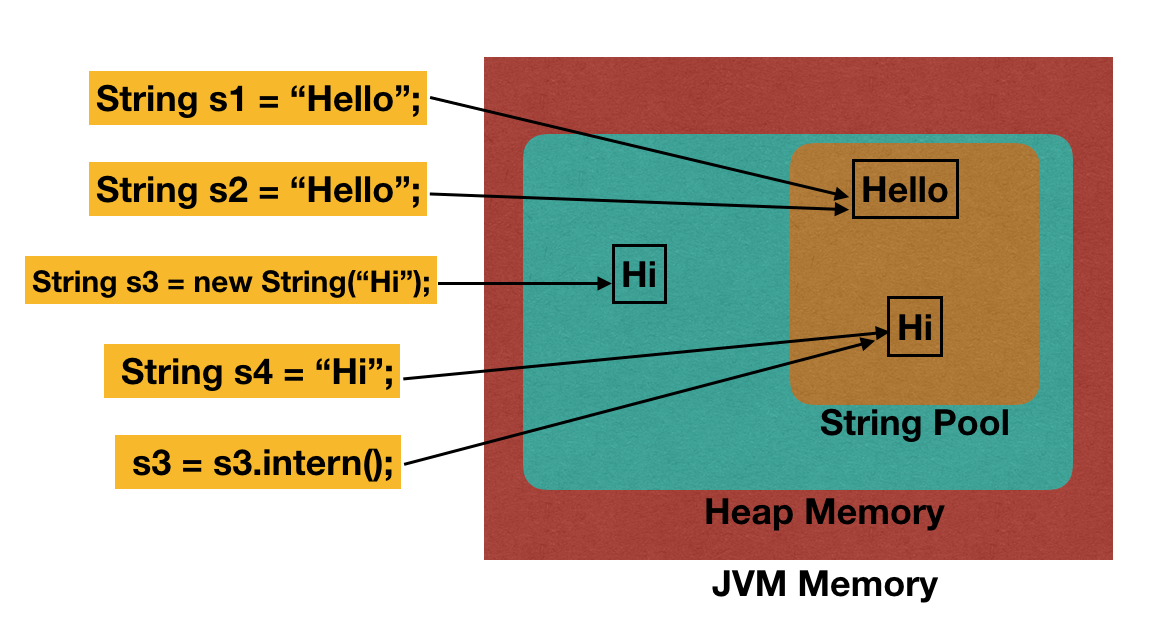Why Are Strings Immutable in Java? Crucial Expertise for Designers
Why Are Strings Immutable in Java? Crucial Expertise for Designers
Blog Article
Discovering the Advantages of Immutable Strings in Modern Programming Paradigms
In the realm of modern-day programs paradigms, the idea of immutable strings stands as a foundation of durable software advancement. By adopting immutable strings, designers can guarantee enhanced data honesty, boosted string safety, simplified debugging procedures, raised safety and security actions, and reliable performance optimization.
Enhanced Data Honesty

By stopping the alteration of string objects, immutability removes the threat of unintended modifications to the data they hold. This not only boosts the security of the details but likewise improves the reliability of the code that counts on these strings.
Immutability also sustains safer multithreading settings, as simultaneous accessibility to immutable strings does not position the danger of data corruption through synchronised modifications. This residential or commercial property streamlines the process of handling strings in parallel programming situations.
Essentially, immutability acts as a protective shield around the information kept within strings, improving their honesty by making sure that once defined, their worths remain unmodified throughout the program's execution.

Boosted String Safety
Immutable strings enhance the string safety and security of programs by ensuring that once a string item is created, its worth can not be modified. This property removes the danger of concurrent strings trying to customize the same string concurrently, which can cause information corruption or inconsistent states in the program - Why are strings immutable in Java?. In a multi-threaded setting, where several threads gain access to and manipulate data at the same time, the immutability of strings gives a level of safety and security by guaranteeing that the information continues to be the same throughout its lifecycle
Simplified Debugging Procedures
Given the improved string safety facilitated by unalterable strings, a significant advantage emerges in the realm of simplified debugging procedures. Immutable strings, once produced, can not be changed, making it less complicated to map the flow of information and determine the resource of insects in a program. This immutability ensures that strings remain consistent throughout the execution of the program, lowering the probability of unexpected changes that could result in errors.
When debugging with mutable strings, developers commonly encounter issues where a string's value is changed accidentally, making it testing to determine the source of an insect. Nevertheless, with unalterable strings, the information remains unchanged, permitting programmers to concentrate on analyzing the actual logic of the code instead of locating where and when a string was customized incorrectly.
Furthermore, immutable strings streamline the debugging process by making it possible for simpler reproduction of pests. Given that immutable strings do not transform state, programmers can recreate and study pests extra effectively, causing quicker recognition and resolution of issues within the codebase. This structured debugging process ultimately adds to greater software high quality and enhanced general growth effectiveness.

Boosted Protection Measures
Enhancing information security and strengthening system integrity, the application of immutable strings in software applications contributes dramatically to boosted safety and security measures. Unalterable strings likewise play a vital role in protecting against common safety vulnerabilities such as buffer overflows and SQL shot attacks, as attempts to adjust string information at runtime are inherently limited.
In addition, the immutability of strings improves the predictability of program habits, making it much easier to validate inputs and stop unforeseen changes that might compromise protection. This predictability simplifies the procedure of bookkeeping and confirming code, allowing designers to identify potential safety and security technicalities more effectively. Generally, integrating immutable strings into software advancement practices not just boosts the robustness and reliability of applications but also enhances their resilience versus security dangers.
Reliable Efficiency Optimization
Structure upon the foundation of increased security actions achieved click to find out more with the application of immutable strings, an essential aspect to consider in software development is efficient efficiency optimization. When taking care of mutable strings, operations like concatenation or substring development frequently cause the production of brand-new string items, leading to memory expenses and increased processing time. Nevertheless, with unalterable strings, these operations can be optimized to boost efficiency. By allowing strings to remain continuous and unchangeable, unalterable strings help with better memory monitoring and caching possibilities, inevitably boosting the total efficiency of the software program.
Considering that unalterable strings can not be customized as soon as developed, they can be shared across strings without the risk of unforeseen changes, decreasing the requirement for synchronization mechanisms and improving concurrency. Unalterable strings streamline debugging procedures as designers can rely on that a string's value will certainly remain consistent throughout the program's execution, getting rid of prospective mistakes triggered by mutable state adjustments.
Final Thought
To conclude, the benefits of utilizing immutable strings in modern programs standards can not be overstated. Enhanced information integrity, have a peek at these guys boosted thread safety, streamlined debugging procedures, raised safety measures, and effective efficiency optimization all add to the general effectiveness of programming jobs. By integrating unalterable strings into programs techniques, programmers can take advantage of a much more robust and reputable codebase.
Immutability, a crucial function of strings in programming languages such as Java and Python, ensures that as soon as a string things is created, it can not be altered or modified.Immutable strings boost the string safety of programs by making sure that as soon as a string things is produced, its worth can not be changed. Unalterable strings also play an essential role in protecting against usual security susceptabilities Continue such as buffer overflows and SQL injection strikes, as efforts to manipulate string information at runtime are inherently restricted.
By permitting strings to stay unchangeable and continuous, immutable strings assist in better memory management and caching chances, eventually boosting the total performance of the software.
Immutable strings simplify debugging processes as designers can rely on that a string's worth will remain consistent throughout the program's execution, getting rid of potential mistakes created by mutable state modifications.
Report this page